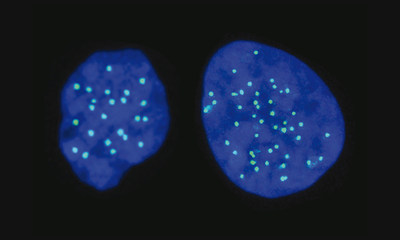NewStem Introduces Novel Technology For Predicting Resistance To Chemotherapies
JERUSALEM, May 22, 2017 /PRNewswire/ -- NewStem, introduces a novel technology for predicting resistance to chemotherapy treatments. The Company is developing a diagnostic kit based on the pioneering research of Professor Nissim Benvenisty, the Azrieli Center for Stem Cells and Genetic Research, the Hebrew University of Jerusalem, in the field of human haploid pluripotent stem cells (HHPSCs)1. The novel technology will be presented at Yissum's booth during the MIXiii Biomed 2017 Conference, to be held on May 23-25, in Tel Aviv, Israel.

Chemotherapy, still the mainstay in cancer treatment, often results in tumor primary and/or secondary resistance to the drugs, thereby not only rendering the therapy ineffective, but also subjecting patients to harsh and potentially harmful treatments. Pluripotent stem cells, cells that are able to differentiate to any given cell type, are used for a variety of applications, from basic research to therapeutics. Due to their differentiation capacity, one potential use of stem cells is to assess the influence of mutated genes on a variety of cells, physiological processes and drug responses. However, since these cells, as most human cells, contain two copies of each gene (diploid cells) it is often difficult to generate cells in which both copies of the relevant genes are mutated.
The technology being developed by NewStem enables the generation of fully functional stem cells containing only one copy of each gene (haploid cells). The Company, recently founded as a spinoff of Yissum Research Development Company of the Hebrew University of Jerusalem, the technology-transfer company of the Hebrew University, possesses proprietary intellectual property, reagents and experience related to the isolation and differentiation of haploid pluripotent stem cells (HPSCs), their genetic manipulation, immunogenicity, tumorigenicity and their unique capacity in disease modeling. A unique and broad library of HPSCs with different mutations and genetic makeups enables NewStem not only do develop diagnostic kits for personalized medication, but also, in the future, to develop therapeutic and reproductive products.
"The haploid stem cells we're developing have the potential to change the face of medical research as they hold a pivotal role in regenerative medicine, disease therapy and cancer research. NewStem is the only company worldwide to develop novel products based on this paradigm-changing proprietary technology, which we acquired under an exclusive license from Yissum," commented Ayelet Dilion-Mashiah, CEO of NewStem. "We are currently in the process of raising funds for our research and development and regulatory activities."
About Yissum
Yissum Research Development Company of the Hebrew University of Jerusalem Ltd. was founded in 1964 to protect and commercialize the Hebrew University's intellectual property. Products based on Hebrew University technologies that have been commercialized by Yissum currently generate $2 Billion in annual sales. Ranked among the top technology transfer companies in the world, Yissum has registered over 9,825 patents covering 2,750 inventions; has licensed out 880 technologies and has spun out 120 companies. Yissum's business partners span the globe and include companies such as Novartis, Microsoft, Johnson & Johnson, Merck, Intel, Teva, ICL and many more.
For further information please visit www.yissum.co.il
[1] Sagi I. et al. (2016) Derivation and differentiation of haploid human embryonic stem cells. Nature. http://www.nature.com/nature/journal/v532/n7597/full/nature17408.html
Media Contact:
Tsipi Haitovsky
Global Media Liaison, Yissum Ltd.
Tel: +972-52-598-9892
E-mail: tsipih@yissum.co.il
To view the original version on PR Newswire, visit:http://www.prnewswire.com/news-releases/newstem-introduces-novel-technology-for-predicting-resistance-to-chemotherapies-300461254.html
SOURCE Yissum

